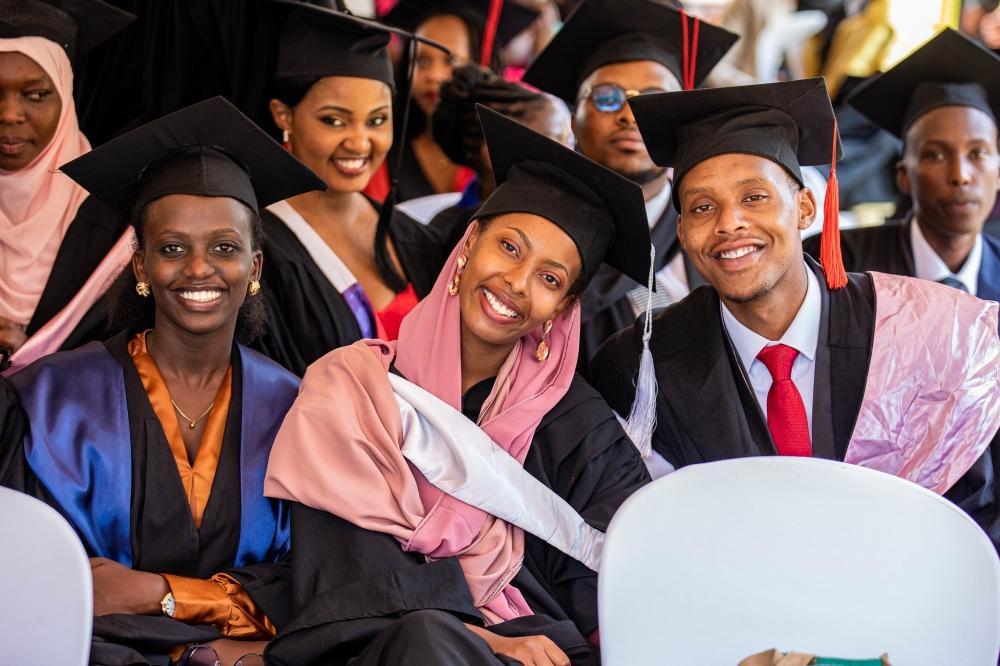Africa-Press – Rwanda. The University of Rwanda (UR) is implementing a funding model focused on diversifying its revenue streams to achieve 63 per cent self-financing within the next four years to be able to continue contributing to education, research, and innovation.
This initiative follows Prime Minister Edouard Ngirente’s statement in November 2022, calling for reforms to improve UR’s financial model.
Given the limited government budget allocated to the university’s six colleges, UR plans to reduce dependency on state funding.
The university faced a financial crisis when its state budget allocation was cut by 50 per cent from Rwf26 billion in 2013 to about Rwf13 billion in 2015-2016.
UR’s budget has been insufficient, hindering its ability to implement programmes, pay its staff on time, and deliver quality education and infrastructure.
The government intervened, providing Rwf17 billion in 2016-2017 to alleviate the crisis. Subsequent allocations increased, reaching Rwf36 billion in 2018-2019 and Rwf48 billion in 2019-2020.
However, this dropped to Rwf33.8 billion in the 2023-2024 fiscal year. Currently, government funding accounts for 57 per cent of UR’s budget.
By expanding its business ventures, seeking research grants, and collaborating with industries, UR hopes to achieve greater financial independence according to the Acting Vice Chancellor Didas Kayihura Muganga.
He said the target is to reduce this dependence to 37 per cent in the next four years.
He noted that the university needs to diversify its funding sources to support its courses, research, and innovation.
“We have been working on a [new] funding model to ensure resource diversification for the university. Government funding alone is not enough. This includes seeking research grants and establishing partnerships with other universities,” he said.
Kayihura also said UR Holding Group, a profit-making subsidiary fully owned by the university, will generate revenues to boost self-financing status.
Initially focused on health services such as dental care, imaging, physiotherapy, and laboratory services, the company has expanded its activities to 79 projects, including fishing, agriculture, medical treatment, public servant recruitment, business services, and hospitality. Other ventures include polyclinics and printing services.
“UH Holding Group has to contribute to the university’s mission by generating revenue and fostering partnerships that enhance educational and research opportunities,” Kayihura said.
The University of Rwanda’s performance has gained international recognition. It was ranked sixth among Sub-Saharan African universities in the 2024 Times Higher Education rankings.
The evaluation was based on five criteria: resources and finance, access and fairness, student engagement, ethical leadership, and Africa’s impact.
Speaking during Universities’ summit which took place in Kigali from March 18-20, Tristan Horlick, Regional Director for the Middle East and Africa at Times Higher Education, said that universities should also become entrepreneurial in attracting funding.
“University of Rwanda should continue excelling in areas such as resources, research partnerships, and African impact,” he noted.
Collaborating with industries for funding
Edward Kadozi, the Director General of the Higher Education Council (HEC), said that research funding for universities is very critical.
“Many African universities still rely on limited government funding. We encourage universities to explore industries for funding through collaboration, especially in research and innovation projects. This innovation can help improve industry competitiveness,” Kadozi noted.
He also stressed the need for universities to work with international institutions to increase their ability to mobilize funds beyond Rwanda and Africa.
Kadozi also addressed the mismatch between university education and market demands, noting that many programmes do not align with industry needs. This gap leads to rising unemployment and inequality.
“The education system needs to be updated to reflect the evolving economic landscape and the skills required in the job market,” he said.
He said sustainable funding is essential to ensure universities can adapt their programs and better prepare students for the labour market.
The Minister of Education, Jean Nsengimana, called for bold reforms in higher education stating that universities should be seen as key drivers of innovation, economic growth, and resilience.
“These institutions must become self-sufficient contributors to global academia and research. Universities must collaborate with industries to develop programmes that are relevant to the job market, enhance employability, and foster innovation in key sectors,” he said.
For More News And Analysis About Rwanda Follow Africa-Press






